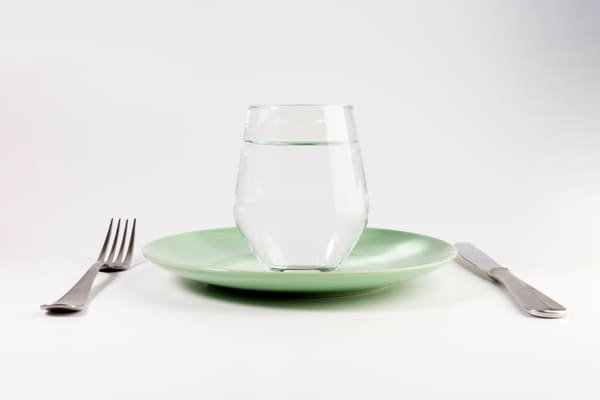How a 7-Day Fast Can Help Revitalize Your Energy Levels
What is a 7Day Fast?
👉 The 7-day fast is a highly restrictive form of fasting. It allows only water and non-caloric drinks. While it has become popular as a rapid weight-loss strategy, it carries a number of risks and may not be suitable or safe for everyone.
Embarking on a deliberate 7-day fast can help achieve a total mind-body renewal and discover self-balance and rejuvenation. In our fast-paced modern lives, finding these things can be difficult, but a 7-day fast can offer profound benefits through careful practice.
Even though a 7-day fast can be beneficial in revitalizing energy levels, it is crucial to approach it with caution and take personal circumstances into account. By avoiding solid foods and instead consuming nourishing liquids like herbal teas and broths, your body can cleanse, reset, and recharge.
During this intentional period of abstaining from solid food, your body undergoes numerous positive physiological changes. As your digestive system gets a well-deserved rest, your energy levels may naturally increase. This revitalization can manifest in various ways, such as heightened mental clarity, improved focus, and increased physical vitality.
It is important to stress that a 7-day fast is a serious undertaking and requires careful consideration of individual health circumstances. Consulting a medical professional is necessary. This blog post aims to inform about the benefits of a 7-day fast, but it does not promote this practice without proper guidance.
We will examine the benefits and risks of going without food for 7 days. We will provide you with information to help you improve your health and boost your energy levels. Our discussion will cover the impact of this approach on your physical and mental well-being to help you make informed decisions.

Table of Contents
- What Happens During a 7-Day Fast?
- How to Do a 7-Day Water Fast
- Potential Health Benefits of a 7-Day Fast
- Risks and Side Effects of a 7-Day Fast
- Tips for a Successful 7-Day Fast
- Frequently Asked Questions
- Final Thoughts
What Happens During a 7-Day Fast?

A 7-day water fast is a type of diet where you don’t eat any food or calorie-containing drinks for a whole week. The only thing you are allowed to consume is water, which helps to hydrate and cleanse your body. People do this for different reasons such as losing weight, getting rid of toxins, spiritual growth, or resetting their digestive system.
Compared to intermittent fasting, alternate day fasting, or 2-3 day water fasting, water fasting for 7 days is a more strict and intense form of fasting. While it may have greater benefits, there is also a higher risk of severe side effects because of the longer duration. If attempting this, having medical supervision is crucial for safety. Here’s what happens during the 7-day water fasting period:
After 12 Hours
When you fast for approximately 12 hours, your body will deplete its stored muscle and liver glycogen, causing it to enter a metabolic state called ketosis. During this state, your body will start breaking down and using up fat for energy instead of relying on carbohydrates. Many people follow a ketogenic diet that restricts carbs to maintain a state of ketosis.
After 18 Hours
After 18 hours, your body begins to use fat as its main source of fuel instead of glucose, which creates additional ketones. As a result, your cells rely on ketones for energy.
After 24 Hours
Autophagy, which is the process of removing and cleaning up dead and damaged cells in your body, starts after a complete 24-hour water fast. In this process, the body recycles functional cellular components and proteins while getting rid of damaged or misshapen proteins. This helps shield against various sources of oxidative damage and premature aging, including neurodegenerative diseases like Alzheimer’s.
After 48-60 Hours
After 48 hours, your human growth hormone level may increase up to five times higher than normal resting levels. At approximately 60 hours into a water fasting regimen, insulin levels will reach their lowest point and the cells’ responsiveness to insulin will be at their highest.
After 72 Hours
After a full three days of water fasting, your body will begin to eliminate old immune cells and produce new and healthier ones.
How to Do a 7-Day Water Fast

To complete a 7-day water fast, you need to only drink water, plain tea, or black coffee without any sweeteners for seven consecutive days. Eating any food or consuming any sweetened beverages is not allowed during the fast.
If you have health conditions such as eating disorders, gout, or diabetes, it is important to seek supervision from a medical professional before starting a water fast. Additionally, older adults, pregnant women, and children should not attempt water fasting. While there is no clear scientific recommendation for starting a water fast, it’s important to be cautious and prioritize your health.
It is recommended for those who are new to water fasting to spend 3-4 days preparing themselves beforehand. You can do this by reducing your meal portions or intermittent fasting. In case you notice any worrisome symptoms, it’s important to seek medical advice immediately.
Potential Health Benefits of a 7-Day Fast

A 7-day water fast can provide many health benefits such as weight loss, autophagy or cell regeneration, and blood pressure and insulin level regulation, all due to reduced calorie intake and no sugar consumption.
Weight Loss
Fasting can help you lose weight by boosting your metabolism through specific hormones and utilizing stored fat for energy. This is called lipolysis, which is the process of breaking down stored fat into compounds that generate energy. While fasting, your body stays in the mode of burning fat actively and utilizes fat reserves for energy.
When you do a water fast, you consume fewer calories than normal, which helps you lose weight. Because your body burns fat for energy instead of food, you can lose up to 1 pound per day during the fast.

Cell Regeneration
Autophagy is a process wherein the body breaks down damaged cells and creates new, healthy cells. It’s essential for maintaining overall cell health. It helps prevent various chronic illnesses such as diabetes, liver disease, autoimmune diseases, cardiovascular diseases, and Alzheimer’s disease. Scientists also study autophagy’s potential effect on cancer chemotherapy treatment to decrease cancer risk.
Autophagy is not limited to cancer patients. Some individuals who want to avoid aging and disease are intrigued by the concept of self-renewal via autophagy. While it is currently only a theory, the relationship between autophagy and fasting is a captivating topic that holds potential for future research.
Balanced Insulin Levels

Eating sugary foods can cause blood sugar levels to increase quickly, especially in individuals with type 2 diabetes, which can cause a surge in insulin. Even individuals who are healthy may experience this after eating a meal or snack that contains simple carbohydrates like sugars and white flour products, especially if they are dehydrated.
Extended fasting has the potential to reduce and stabilize insulin levels. However, individuals with diabetes should only fast under medical supervision and recommendation.
Risks and Side Effects of a 7-Day Fast
A 7-day water fast can lead to certain side effects such as feeling dizzy and tired. Dehydration and loss of muscle mass are the most prominent among them. Additionally, you may face issues like disturbed sleep, weakness, and reduced energy levels.

Dehydration
It may seem surprising, but dehydration can occur during a water fast, especially if it is prolonged. This is because a part of your body’s water requirement usually comes from food. Signs of dehydration include muscle cramps, weakness, and dizziness.
Prolonged fasting can cause loss of bodily fluids that may lead to electrolyte imbalances. Such imbalances can be dangerous and life-threatening. To prevent this, your doctor may recommend taking an electrolyte supplement containing potassium, calcium, and sodium.
Muscle Loss
If you plan on doing a 7-day water fast for weight loss, it’s essential to learn how to avoid losing muscle mass. Your muscles play a crucial role in your everyday activities and are vital for burning calories effectively.
When you are fasting, your body should ideally burn fat for energy, but initially, it will first use up stored sugar and also break down muscle tissue to convert protein into glucose. During a 7-day water fast for weight loss, you may lose some muscle along with fat. Losing muscle is a significant concern, as it can affect your physical appearance and strength.

Sleep Disturbances
If you plan on doing a 7-day water fast, keep in mind that it could impact your sleep by disrupting your body’s circadian rhythm. This internal clock regulates your sleep and wake cycles, so any disruption may lead to insomnia and difficulty sleeping.
When you fast, it may affect your sleep because stress hormones like cortisol can increase, and your sleep-wake cycle may be disrupted. Also, not drinking enough fluids and having an electrolyte imbalance during fasting could cause muscle cramps, weakness, and tiredness, which may also interfere with your sleep.
Tips for a Successful 7-Day Fast
To begin a 7-day fast, it is important to first consult with your healthcare provider for a medically-supervised water fast. Once cleared, you should physically prepare your body and mentally and emotionally prepare your mind for the week-long water fast.

Pre-Fast
Before starting the 7-day water fast, it’s recommended to try shorter water fasts first to prepare your body. While it’s possible to start the 7-day fast directly, practicing with shorter fasts is a good idea.
One suggestion could be to fast for 24 hours with only water a week before starting the 7-day water fast. Another idea is to try 20/4 intermittent fasting, where you fast for 20 hours and then eat within a 4-hour window each day, for a few days or a week leading up to the 7-day fast.
Suddenly abstaining from all food intake for a full week can be a shock to your system and a difficult transition if you are not already regularly practicing intermittent fasting or any kind of water fasting protocol.

If you haven’t fasted before, it’s important to prepare your body for a 7-day fast by being mindful of your diet 2-3 days beforehand. Don’t overeat before the fast, even though it might be tempting. To avoid overeating, avoid processed foods that contain sugar and artificial sweeteners, and choose whole and nutritious foods, including vegetables, fruits, lean proteins, and eggs.
During Fasting
Drink calorie-free beverages like water, green tea, black coffee, and seltzer throughout the day to stay hydrated. To add a refreshing flavor, consider infusing your water with lemon or cucumber.

If you’re worried about getting all the necessary nutrients while fasting, you should consider consulting with your doctor about taking a daily multivitamin and mineral supplement to add to your diet. Others solve this by licking pure pink Himalayan salt.
One way to manage hunger during fasting is to stay occupied with fun or engaging activities. This can include playing games, listening to music, reading, exercising, or taking a mindful walk. These things can help shift your attention away from feeling hungry.
Post-Fast
It is recommended to avoid eating a large meal after a water fast as it may lead to undesirable symptoms. After longer periods of fasting, it’s crucial to be mindful of the post-fast phase.
Refeeding syndrome, a potentially life-threatening condition, can occur due to abrupt changes in fluid and electrolyte levels during this period. Digesting and absorbing nutrients, especially carbohydrates, require sufficient levels of certain electrolytes such as magnesium, potassium, and phosphate.
Typically, the reintroduction period for food lasts for a day. It may take around three days for you to feel comfortable eating larger meals after fasting for more than three days. When introducing food again, it’s best to choose low-carb, easily digestible options like cooked veggies, bone broth, and fermented foods. However, please consult your healthcare provider for personalized advice.

Frequently Asked Questions
Is it Safe to Fast for 7 Days a Week?
While 24-hour to 72-hour fasts are generally safe for healthy adults, it is not safe for everyone to fast continuously for 7 days. Before attempting an extended fast, it is important to be cautious and seek guidance from a healthcare professional. Factors such as individual health conditions, medications, and nutritional needs must be taken into account. Though a well-planned 7-day fast may have some benefits, safety should be the top priority, and consulting a medical expert before starting is crucial.
How Much Weight Can You Lose By Water Fasting for 7 Days?
The amount of weight you may lose through a 7-day fast greatly differs depending on the individual. When you fast with only water, your body burns stored fat for energy which can lead to significant weight loss. However, the first weight lost during the fast is generally due to water loss instead of fat loss. Additionally, factors like your metabolism, body composition, and initial weight can affect how much weight you can lose.

Final Thoughts
Before starting a 7-day fast, it is important to gather all necessary information and proceed with caution. Although fasting for a week can have positive effects on your physical and mental well-being, it is crucial to be well-informed.
While a 7-day fast can provide benefits such as weight loss and elimination of toxins, it’s important to remember that not everyone can fast. Because everyone has unique health considerations and requirements, it’s recommended that you seek guidance from a healthcare provider or certified dietitian prior to beginning any fasting regimen.
If you’re starting a 7-day fast, make sure you take care of yourself and listen to your body. Remember to drink enough fluids and be aware of any discomfort or negative effects.
Keep in mind that fasting is not the only way to boost your energy and achieve overall mind-body rejuvenation. You can also try different methods such as doing regular exercise, practicing mindfulness and meditation, and keeping a balanced diet, among others, that can help you attain the same desired outcome.
Deciding whether to do a 7-day fast or any type of fasting is a personal choice. It’s important to think it through and get advice from an expert. Remember to put your health first, pay attention to how you feel, and look at different options that match your wellness objectives.

